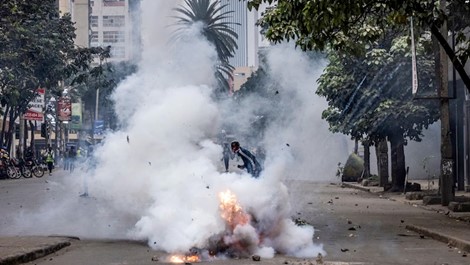Kenya High court bans police ban on protests in Nairobi
Post By Diaspoint | July 20, 2024

Kenya’s High court on Thursday suspended a police ban on protests in the capital, stating citizens have a right to demonstrate peacefully.
Before the High court’s decision, police had barred protests in Nairobi indefinitely, saying they lacked leadership that would ensure peaceful demonstrations. The suspension of the ban came before a planned protest, in which demonstrators were expected to march to the president’s office calling for his resignation over poor governance.
Acting police Inspector General, Douglas Kanja, in a statement said the lack of leadership had “made it difficult to enforce safety protocols.”
Recent protests have left businesses counting losses after the lootings and burnings. Protests were yet to be seen Thursday, but major roads leading to the president’s office remained barricaded by the police.
A month of protests
Kenya has seen a month of protests that started with calls for legislators to vote against a controversial finance bill that proposed higher taxes amid a cost-of-living crisis and ballooning public debt. At least 50 people have died since the protests began on June 18, according to the Kenya National Commission on Human Rights.
President William Ruto said he wouldn’t sign the finance bill that was passed by parliament on June 25 — the day protesters stormed and burned part of the building, prompting legislators to flee. The president last week dismissed almost his entire Cabinet and the attorney general, as demanded by protesters who accused ministers of incompetence, corruption and display of opulence.
The US Embassy in Nairobi on Thursday urged police to protect the right of Kenyans to demonstrate and encouraged the government to “continue taking steps forward” toward national unity and reconciliation.
Government spokesperson Isaac Mwaura on Thursday said the economy had incurred losses worth Kshs 6 billion ($45 million) because of ongoing monthlong protests.
Police accused of brutality
Read More from original source
